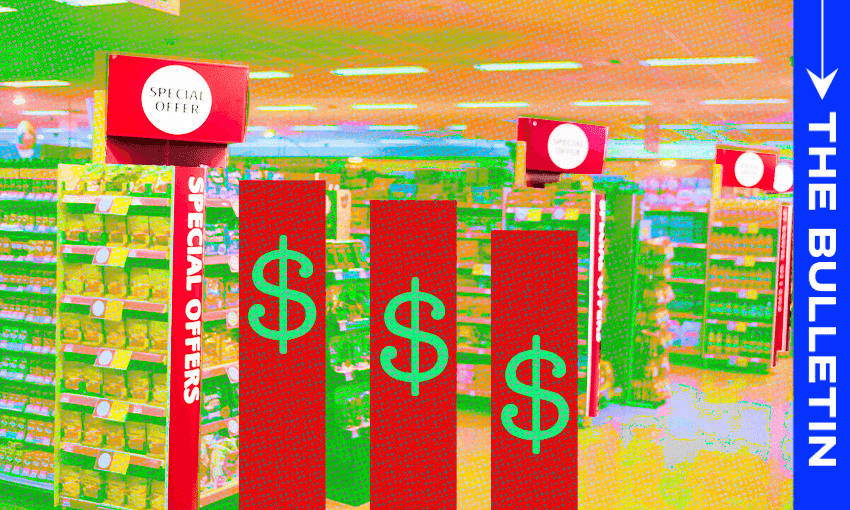A proposed update to the grocery supply code would prohibit major supermarkets from charging suppliers for shelf placement and merchandising, writes Catherine McGregor in today’s extract from The Bulletin.
To receive The Bulletin in full each weekday, sign up here.
Supermarket vs supplier
The Commerce Commission’s draft review of the grocery supply code is shining fresh light on long-standing tensions between supermarkets and the companies that supply them. Released last week, the draft proposes banning supermarkets from charging suppliers for “rebates, discounts, and promotional payments”. Explains Rob Stock in The Post (paywalled): “The majority of these fees … are paid in exchange for the supermarkets putting products ‘on special’ to tempt shoppers.” The resulting sharp swings in pricing, which are not so common overseas, could be leading to higher average prices for shoppers, the commission believes.
Though New Zealanders’ frustration with food prices is also driven by inflation and global supply chains, the commission says it’s concerned that the way supermarkets treat their suppliers is reinforcing market inefficiencies.
Early review sparked by concerns the code isn’t working
The grocery supply code came into force in late 2023 with the goal of improving how the dominant supermarket chains – Foodstuffs and Woolworths – treat their suppliers. Grocery commissioner Pierre van Heerden brought forward the code’s first review after he became concerned that it wasn’t doing enough to address power imbalances between the major retailers and suppliers. That impulse was reinforced by the first annual grocery market report, published in September, which found little meaningful improvement in competition despite government reforms. The report noted that many suppliers remained too fearful to push back on supermarket demands due to the risk of being delisted. Only half had signed the new supply agreements issued under the code.
The code review’s draft findings reiterate the commission’s concerns about a deep power imbalance, “We are still bullied into paying … merchandising and promotion fees, but stores still expecting us to also merchandise with threats of deleting if don’t comply”, the report quoted one supplier as saying.
$5b in supplier payments under the microscope
Those rebates, discounts and promotional support fees mentioned above net the supermarkets around $5 billion each year, the review estimates. While the grocery supply code currently permits supermarkets to charge for activities such as merchandising (ie stocking shelves and setting up displays) if suppliers are given a clear explanation, the draft review proposes removing that clause entirely. It argues that merchandising – along with activities like buyer visits to suppliers, consumer research and in-store displays – are part of a retailer’s job, not a cost to be pushed onto suppliers.
As BusinessDesk’s Gregor Thompson reports (paywalled), the change would affect one of the chains far more than the other. Woolworths says it doesn’t charge merchandising fees – but Foodstuffs does, defending the practice as a globally accepted model that improves consistency and efficiency. The commission disagrees, saying merchandising is considered a retailer’s responsibility in most sectors and that charging for it “may be used unfairly given the inherent pressure on suppliers to agree to terms to obtain/maintain ranging”.
Foodstuffs North Island comes under particular fire
The commission’s draft review also includes results from a survey of 560 suppliers. Foodstuffs North Island emerged as the most negatively rated supermarket chain, with 35% of respondents reporting a bad experience – compared to 19% for Woolworths and 17% for Foodstuffs South Island, which is run separately.
Foodstuffs NI, which owns the North Island Pak’nSave, New World and Four Square brands, also ranked worst for ease of doing business and fairness. The company has defended its approach. “We know some suppliers find us firm to deal with, and that’s fair,” a spokesperson told The Post. “But we make no apology for negotiating hard on behalf of the millions of New Zealanders who shop with us every week.”
More from The Spinoff:

